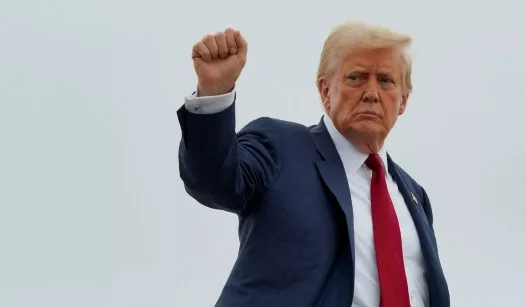In the early months of Trump’s second term, the United States has made significant strides in Middle Eastern diplomacy. This shift can be attributed to Trump’s realistic assessment of U.S. interests in the region, which contrasts sharply with previous administrations’ approaches.
Under Trump 2.0, the administration has prioritized pragmatic solutions over ideological pursuits, leading to a series of diplomatic successes. These achievements include strengthening alliances with key partners, fostering economic cooperation, and addressing security concerns that have long plagued the region.
One of the most notable aspects of Trump’s Middle East policy is his focus on bilateral relationships. By fostering direct communication and collaboration with nations such as Israel, Saudi Arabia, and the United Arab Emirates, the administration has been able to navigate complex regional dynamics more effectively. This approach has not only enhanced America’s standing in the region but has also encouraged other nations to engage more constructively with one another.
Additionally, Trump’s administration has taken a firm stance against adversarial forces in the region, particularly Iran. By reasserting U.S. commitment to countering Iranian influence and supporting allies threatened by Tehran, Trump has sought to establish a balance of power that favors American interests and those of its partners.
Economic initiatives have also played a crucial role in this new Middle East policy. The administration has actively promoted investment opportunities and trade partnerships, recognizing that economic stability is essential for long-term peace and security. By encouraging private sector involvement and facilitating economic growth, the U.S. aims to create a more prosperous and stable environment in the region.
Furthermore, Trump’s administration has placed a strong emphasis on counterterrorism efforts, working closely with regional partners to combat extremist groups. This collaborative approach not only enhances security but also helps build trust and cooperation among nations that have historically been at odds.
As Trump continues to navigate the complexities of Middle Eastern politics, his administration’s realistic and pragmatic approach stands in stark contrast to the more idealistic strategies of the past. By focusing on tangible results and prioritizing U.S. interests, Trump is reshaping the landscape of American foreign policy in the region, paving the way for a more stable and cooperative Middle East.
In conclusion, the early successes of Trump 2.0 in Middle Eastern policy underscore the importance of a realistic approach to international relations. By prioritizing pragmatic solutions, fostering strong alliances, and addressing key security and economic issues, the administration is not only enhancing America’s influence in the region but also laying the groundwork for a more stable future.
